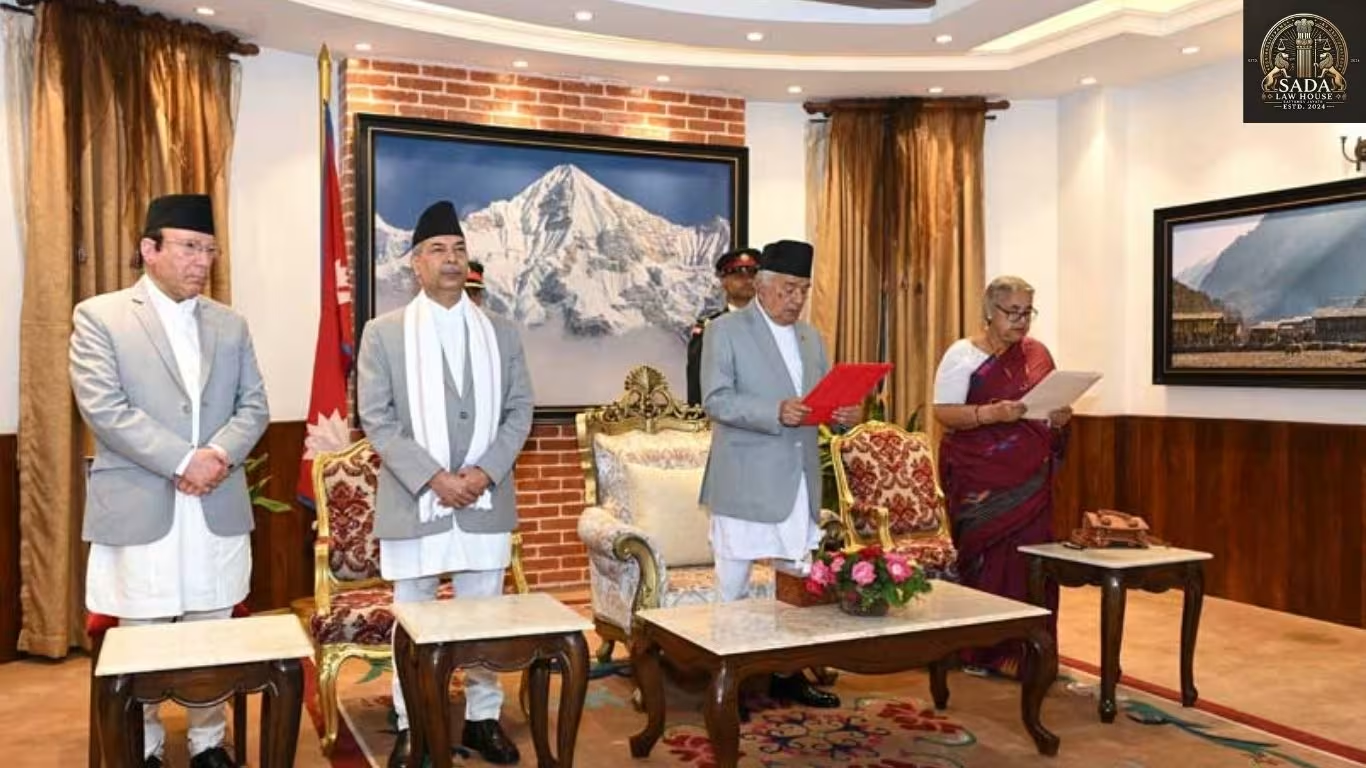Nepal Sets March Elections After Appointing First Woman Interim Prime Minister
- Shristi Singh
- 14 September 2025

Introduction
Nepal entered a new political chapter on Saturday as President Ramchandra Paudel dissolved Parliament and announced fresh elections for 5 March 2026. The move came after weeks of youth-led protests that shook the Himalayan republic. The appointment of Sushila Karki, Nepal’s former Chief Justice, as the nation’s first woman interim Prime Minister marks both a historic milestone and a test of stability amid deepening political and social unrest.
Background of the Crisis
For weeks, Nepal was engulfed in protests led largely by Generation Z activists. Initially triggered by a controversial social media ban and fueled by grievances over corruption, unemployment, and governance failures, demonstrations escalated into violent clashes with security forces.
At least 51 people died and more than 1,300 were injured, making it one of the most violent uprisings since Nepal’s 2008 republican transition.
Mounting unrest forced Prime Minister K.P. Sharma Oli to resign earlier this week, creating a political vacuum.
Appointment of Sushila Karki
In response, the ruling coalition nominated Sushila Karki, former Chief Justice of Nepal’s Supreme Court, as interim Prime Minister.
She is recognized for her integrity and anti-corruption stance.
Karki had already made history in 2016 as Nepal’s first female Chief Justice.
Now, she repeats history as the first woman Prime Minister, tasked with restoring public trust and calming protests.
Dissolution of Parliament & Election Announcement
President Ramchandra Paudel dissolved the federal Parliament under constitutional provisions.
General elections scheduled: 5 March 2026.
The decision is being positioned as democratic renewal, offering citizens the chance to elect new leadership.
Analysts note that the interim period allows time for electoral preparations while addressing law and order.
Scenes on the Ground
Following the announcement:
Shops reopened and traffic resumed in Kathmandu.
Roads cleared after days of barricades and burning tires.
A heavy security presence remained in many districts.
Yet, tensions lingered as families of those killed demanded recognition as martyrs and financial compensation. One grieving father said:
“My son died for justice. We will not leave until this government honors him as a martyr.”
India’s Response
India welcomed Nepal’s election announcement, stressing hopes for “peace, stability, and democratic renewal.”
As Nepal’s largest trading partner and influential neighbor, India’s support is viewed as crucial.
Observers also noted India’s concerns about China’s growing presence in the region.
Public Reaction
Supporters: Hailed Karki as a symbol of honesty and change, especially youth and women’s groups.
Skeptics: Questioned her ability to withstand pressure from entrenched political elites without a political base.
Social media: Hashtags like #FirstWomanPM trended alongside demands for deeper reforms.
Challenges Ahead
Restoring Order – Preventing further violence and calming unrest.
Ensuring Fair Elections – Transparent polls in under six months require resources and trust in institutions.
Meeting Protester Demands – Beyond elections, youth want anti-corruption reforms, jobs, and digital freedoms.
Geopolitical Balance – Navigating relations with India and China while focusing on domestic stability.
International Significance
Nepal’s turmoil has regional and global implications:
As a fragile democracy between India and China, instability could affect regional politics.
Western governments (US, EU) urged accountability for protest deaths and a peaceful electoral process.
Analysis
Karki’s appointment is symbolic yet uncertain. While her clean image provides credibility, her lack of political machinery poses challenges. Dissolving Parliament and calling elections may reset the political system, but youth-driven unrest may persist unless systemic reforms are implemented.
The protests revealed a widening generational divide in Nepal. Young citizens are increasingly impatient with corruption and traditional leadership, demanding transformative change rather than temporary fixes.
Conclusion
Nepal has entered uncharted political territory. The appointment of Sushila Karki, the nation’s first woman Prime Minister, and the scheduling of elections for March 2026 present both hope and uncertainty. While her leadership symbolizes renewal, the cost of this transition—lost lives, eroded trust, and strained institutions—remains high.
The coming months will determine whether Nepal transforms its turmoil into democratic renewal or whether unrest resurfaces in a fragile republic watched closely by the world






